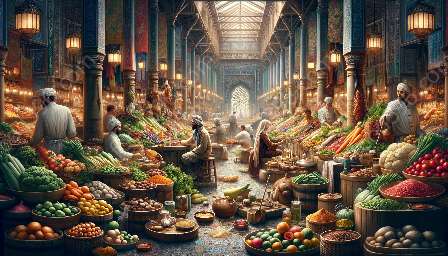The Renaissance period was a time of cultural and culinary revival in European history. It significantly influenced early modern cuisine and played a crucial role in shaping the culinary practices we know today. Let's explore the gastronomic customs and traditions of this fascinating era.
1. Introduction to Renaissance Cuisine
The Renaissance, a period of profound cultural, artistic, and intellectual transformation from the 14th to the 17th century, had a profound impact on the culinary world. During this time, there was a renewed interest in the arts, sciences, and exploration, which extended to the realm of gastronomy.
2. Ingredients and Flavors
Renaissance cuisine was characterized by an abundance of ingredients and a wide array of flavors. The use of spices and herbs, such as cinnamon, nutmeg, clove, and pepper, was prevalent in both savory and sweet dishes. Moreover, the introduction of new ingredients from the New World, such as tomatoes, potatoes, and chili peppers, expanded the culinary repertoire and led to new and exciting flavor combinations.
3. Culinary Techniques and Innovations
During the Renaissance, culinary techniques saw significant advancements. The refinement of cooking methods, such as roasting, stewing, and baking, allowed for the creation of elaborate and intricate dishes. Chefs and cooks also experimented with innovative culinary practices, laying the groundwork for the evolution of early modern cuisine.
4. Dining Culture and Etiquette
Dining during the Renaissance was a ritualistic and social affair, governed by strict etiquette and manners. Banquets and feasts were elaborate events, showcasing the wealth and status of the host. Table manners and the art of conversation were highly valued, reinforcing the social hierarchy and cultural norms of the time.
5. Culinary Influences on Early Modern Cuisine
The culinary practices of the Renaissance period left a lasting imprint on early modern cuisine history. Many of the cooking techniques, flavor combinations, and dining customs that emerged during the Renaissance continued to shape the culinary landscape in the following centuries, contributing to the rich tapestry of culinary traditions enjoyed today.
6. Conclusion
Reflecting on the culinary practices of the Renaissance period offers valuable insights into the historical development of early modern cuisine. The era's emphasis on innovation, abundance of ingredients, and sophisticated dining culture continues to inspire and influence culinary practices globally, highlighting the enduring impact of this remarkable period in culinary history.

